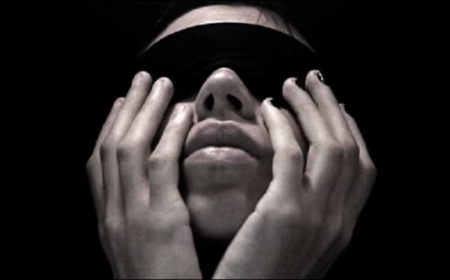I’m having a hard time keeping up with his blogging! His long part 4 of his review of What is the Trinity? is here: “Trinity, Creation, and the Christian Distinction.” He starts by noticing this famous “triadic” text from Paul:
“The grace of the Lord Jesus Christ and the love of God and the fellowship of the Holy Spirit be with you all” (2 Cor 13:14).
But he doesn’t notice, as a great scholar has pointed out, that this not what a trinitarian should expect! The three are in the wrong order, and the Father, not the three of them together, is called “God”! But it is what a unitarian would expect.
He continues to weave his story about how even the earliest Christianity was “trinitarian.”
Before there was a doctrine of the Holy Trinity, there simply was the Holy Trinity in whose reality Christians lived and prayed. The Trinitarian naming structured and formed the worship of the Church. From the beginning believers prayed to the Father, through and with the Son, in and by the Spirit.
 Again, it doesn’t register with him that this is a unitarian friendly pattern of prayer, and not what one would expect from trinitarians! As I mentioned last time, he’s just happy to have found something triple/threefold early on – even if it’s not a conception of the one God. But that’s not the same as finding trinitarian theology to be presupposed! These folks are all explicitly confessing belief in one God [aka] the Father Almighty, the creator.
Again, it doesn’t register with him that this is a unitarian friendly pattern of prayer, and not what one would expect from trinitarians! As I mentioned last time, he’s just happy to have found something triple/threefold early on – even if it’s not a conception of the one God. But that’s not the same as finding trinitarian theology to be presupposed! These folks are all explicitly confessing belief in one God [aka] the Father Almighty, the creator.
When confronted with the charge of polytheism, they no doubt insisted that they worshipped and served the one God of Israel, yet to this one God they now attached, by divine revelation and sacramental mandate, the names of Jesus and the Spirit, as exemplified in the earliest examples of credal faith.
This is demonstrably wrong; read the apologists of the 100s and 200s, and see how they actually reply to the charge of polytheism. I’m starting to lose my patience with these “just so” stories, which people find it so convenient to imagine. We need to anchor any true narrative about early Christianity in the actual evidence. Fr. Kimel seems to appeal to the authority of the late theologian Jenson here, but that doesn’t seem to the point. After the quote:
Hence we may speak of a foundational Trinitarianism embodied in the stories, hymns, and ritual practices of the apostolic Church.
We may so speak, if we want to mislead people into to thinking that early Christians believed in a triune God, rather than merely in the triad of God, his Son, and his Spirit or spirit. I should not mince words here; this statement is an abuse of words. We ought to reserve “trinitarianism” for things having to do with the triune God of catholic orthodoxy.
He then rehearses the idea of creation from nothing, which pagan philosophers thought to be incoherent. He supposes that, somehow,
The sense of divine transcendence made possible by the creatio ex nihilo opens up the possibility of thinking the mystery of three equally divine hypostases united in perichoretic union
I don’t get it. I don’t see any connection. But his idea seems to be that intuitions about impossibility should be confined to the realm of natural things, so that we should think that there can be no objection to the idea of a tripersonal god. This seems to misunderstand the very idea of metaphysical possibility, though.
But his point is that seeming incoherence is to be expected in theology:
The articulation of the mysteries of Incarnation and Trinity requires us to employ the language of paradox and antinomy, but that is what one should expect, if God is radically transcendent in the way the catholic tradition affirms.
That seems an obvious non sequitur to me, for the reasons I’ve explained here. I think this at bottom amounts to the fallacy of special pleading. For my theory, seeming incoherence is a good thing. Of course, such would sink just about any other theory. I think the sense of being in a dominant majority prevents Christians like Fr. Kimel from seeing this as the problem it is. If this is just part of Tradition, how could it be arbitrary?
 He then rehearses the idea that God is “Being Itself.” I think this is utterly wrongheaded philosophy – atheistic in fact, as it makes the ultimate reality to be a something-or-other which is not a god. But in any case, his point is just that divine transcendence should make us friendly to seeming theological incoherence. I’ve already said that I don’t think that follows. And let me also say that this claim is not at all part of any OT or NT teaching. We ought to wonder if we can get along without this help from Platonic philosophy. We should be afraid lest we build our house on philosophical sand, and not on Jesus’s theology and that of his apostles.
He then rehearses the idea that God is “Being Itself.” I think this is utterly wrongheaded philosophy – atheistic in fact, as it makes the ultimate reality to be a something-or-other which is not a god. But in any case, his point is just that divine transcendence should make us friendly to seeming theological incoherence. I’ve already said that I don’t think that follows. And let me also say that this claim is not at all part of any OT or NT teaching. We ought to wonder if we can get along without this help from Platonic philosophy. We should be afraid lest we build our house on philosophical sand, and not on Jesus’s theology and that of his apostles.
Is it possible for the analytic philosophical tradition to think beyond its logic and apprehend the radical distinction between Deity and cosmos? If it does not, it will never grasp the holy mysteries of the Christian faith.
Well, it’s no harder than grasping the distinction between an apparent contradiction and a real one, and discussing divine transcendence, and ineffability, and whether terms can apply univocally to both God and to creatures – things many analytic philosophers do. Indeed, some, like Brian Davies, Ed Feser, and William Vallicella, endorse the “Being Itself” conception of the ultimate.
The real question, I think, is whether or not this idea about “God” is consistent with biblical teaching. Is YHWH supposed to be the greatest of the gods, and so, a god, or is “he” rather on inconceivable Something? Is he like a Father, or is It like a blinding light or an impenetrable darkness?
